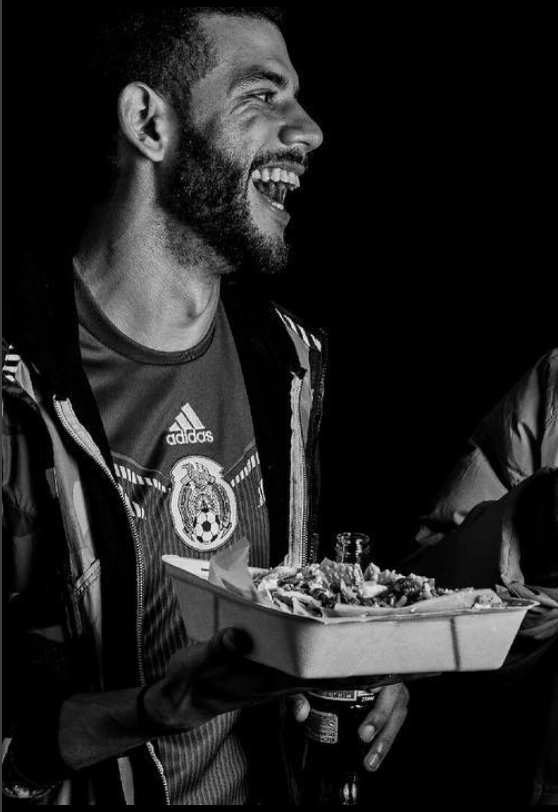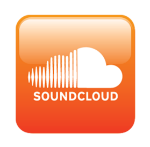Gigmor sat down with Kevin Wright, the man running the show in the Marketing and Artist Development department at Ramsay Mulholland Events in Los Angeles. Kevin offered some insight into how to be successful as an independent artist and how he and the rest of the team at Ramsay Mulholland Events are working to better the music marketing process for musicians today.
People generally describe music marketing as a thing of the past, but it seems like you and the team at Ramsey Mulholland have found a way around that. Tell me a little bit more about exactly what Ramsey Mulholland does.
Yes, of course! So we’re sort of set up in two different halves: accessible artist development for independent and local artists or entrepreneurs and the second is college-based touring and education.
Ok, let’s begin with that first part — what does artist development mean at Ramsay Mulholland?
What I saw when I was working at the label was that there wasn’t much we could do for people. The biggest artists are staying home anyways and doing their own thing — so what we noticed at the record label was that no matter how fast we move or how nimble we are, we can’t connect to the culture as efficiently as those who just are already in those cities and are currently experiencing that culture. Nashville, Austin, Atlanta, Chicago — they’ve all blown up, and the people who have grown from those places are choosing to stay there. Working at a record label taught me that and led me to decide that, well, maybe we should just switch the model. We started looking for artists who are just working on themselves in the space that they are from in specific areas across the United States. I wanted to take what I had learned as a label scout and give it to those independent artists and entrepreneurs throughout the United States so that they could reach a viable level of fame on their own. We are also trying to show them what they need and what they don’t.
So what does your interpretation of artists development and showcase entail?
It includes an artist meet-up and showcase. We saw that old model — where you get in front of a scout and anything could happen — and decided to flip it on its head a little bit where we act as the scouts that people get in front of but then we tell them what we think they should be working on to get noticed. We also try to get to know and work with artists before we get there and when we get there — until we leave honestly — just because the time we spend there will be so limited. We want to be able to speak of them and their act as well or as fully as possible because there is only so much we can do and say based on one specific performance. The more interaction and consumption of the artist, the better.
So the initial college tour will include thirty cities. We have invited artists, producers, DJs, managers, booking agents, and anybody that’s around the music scene in those cities to those events and we want to bring them together to connect and network. It’s 30 cities and about 10-12 artists for each.
What’s the college-based portion of your efforts entail?
It’s essentially the same thing as the artist development work we are doing — it’s a showcase and music meet-up. When I saw the guys trying to put the showcases together I remembered my time as a scout. I remembered people coming up to me when they were trying to put events together and using me as a scout at that time. They would go through the immense hassle of having to put an event together. And I remember wishing that when I was in college that there would have been an opportunity like this. I would have loved to have gotten involved — and I had the necessary skill set but no where to put it! So the idea of these showcases was sort of born out of that — they are not just for college artists, they are for the entrepreneurs and the business students as well. And the best part about it, honestly, is that it is for them and by them, with them being the college students who understand the community and music scenes around them.
From September through December of this year we are doing local showcases and then from January to May we are going to do the college showcases.
What is it behind all of this kind of work that drives you to do it?
Some of it comes from fighting for the independent artist but it’s also that the industry is changing super rapidly. It’s all changing so fast; I consider myself a student of the game and how it once was and what it will be due to the internet and the different ways by which we now as a culture consume music.
Everybody knows the artist, but what I learned when I got into the industry I learned that there are people behind the scenes — individuals like a Clive Davis or a David Geffen— that are 100 times bigger than you could ever imagine. For every one superstar that you could imagine they’ve got ten or twenty underneath their belt. Those guys are the real special ones, but the power there has been reduced over time. But that sort of power has been reduced, and now the artist almost has to create it on their own. The A&R men and women of the past were buying and then funding independent labels. I love that — they were removing the economic burden of these independent labels so that artists could have all the space to capture their work. They were funding them to have artistic freedom which is something that we hope to replicate on these college tours.
I wanted to bring that into the 21st-century music scene. All of these college kids think that they should be working towards a record label and how to suit those record labels in some way — and I’m trying to communicate to them and the entrepreneurs or business students around them that that old form is dead. The music industry is a changing game, and I want to relay those changes to these kids so that they and all their talent can react accordingly.
Everyone seems to have a negative outlook on the music industry. But you seem to have a hopeful outlook on it all, despite the criticisms of the masses. Why are you hopeful?
I remain super hopeful about the music industry, you’re dead-on. The music industry is healthier than it has ever been; there are more options for everybody and there are more ways to make money than ever before. In the transition, you had to lose some. You had to break a lot of eggs to make this omelette. But I really believe that it’s better and more inclusive than it has ever been. And it’s growing pretty rapidly. Most of us, us being the industry people, have to figure out how it is that our audiences are finding music now. It’s still pretty vague how people are consuming and looking for music, but we are getting better.
What’s even better about the current reality in the music industry is that it is a meritocracy. So if it’s great it’s going to survive and if it’s not it’s going to die quickly because that what the public decided.
What is some of the best advice you could give to artists who are trying to promote and market their music?
I think that the most important thing is take the time and do your homework. I have my own label and that’s where I’m pulling this understanding from. It always starts with the music; everything starts with the music. People always come in and ask me: how are we going to promote this? And what about PR? And to all of that I always tell them to just go and make the music and you’ll be surprised how many opportunities come your way.
So one, make the music. And then two, do your homework. There are so many good songs that go out and no one is working to make sure that you are collecting royalties. It costs $9 to put a single out on TuneCore. It’s not that hard to get your songs out on Spotify, and SoundCloud is great too; but always do your homework because there are so many good opportunities online right now that can help you be more successful.
Any other specific recommendations that you would offer to up-and-coming artists?
I would tell individuals to learn what TuneCore is, and learn what distribution is or label promotion, too. It’s not that hard to have your songs out there and seen by the public, but do your homework so that you can guarantee that you are getting the most out of every outing or performance you do. If you have a song on YouTube that gets one million or 100,000 views and you don’t do your homework, you’re likely to not make a single dime from it.
There was one duo that I developed outside of a label were two brothers who were really active on Vine. They had 300 million and 600 million in their number of Vine views and they just weren’t putting it on YouTube. I put a bunch of their Vine videos together and used their cellphone to do a sort of intro; we put that up on YouTube and now they have a new record deal at 17 and 18 years old. From that post too they got a deal with YouTube and their multi-channel network — they were doing all of the hard work but they weren’t doing the homework.
It sounds like a lot of your tour is focusing on smaller cities in the United States that still have a vibrant music scene but aren’t necessarily that immediate go-to place that a lot of people would consider. This is intentional, I assume. Why is that?
You have to make your music palatable, and I always think that you should start small and capture the attention of that small city. If you can capture the attention on that smaller stage, you can then take it to another, more major level. Someone like a Bryson Tiller who is from Louisville, Kentucky where everyone in Kentucky knew exactly who he was. Then, when you’re entering the New York or Los Angeles scenes, you’ve got far more people consuming your music but a foundation of fans to fall back on.








